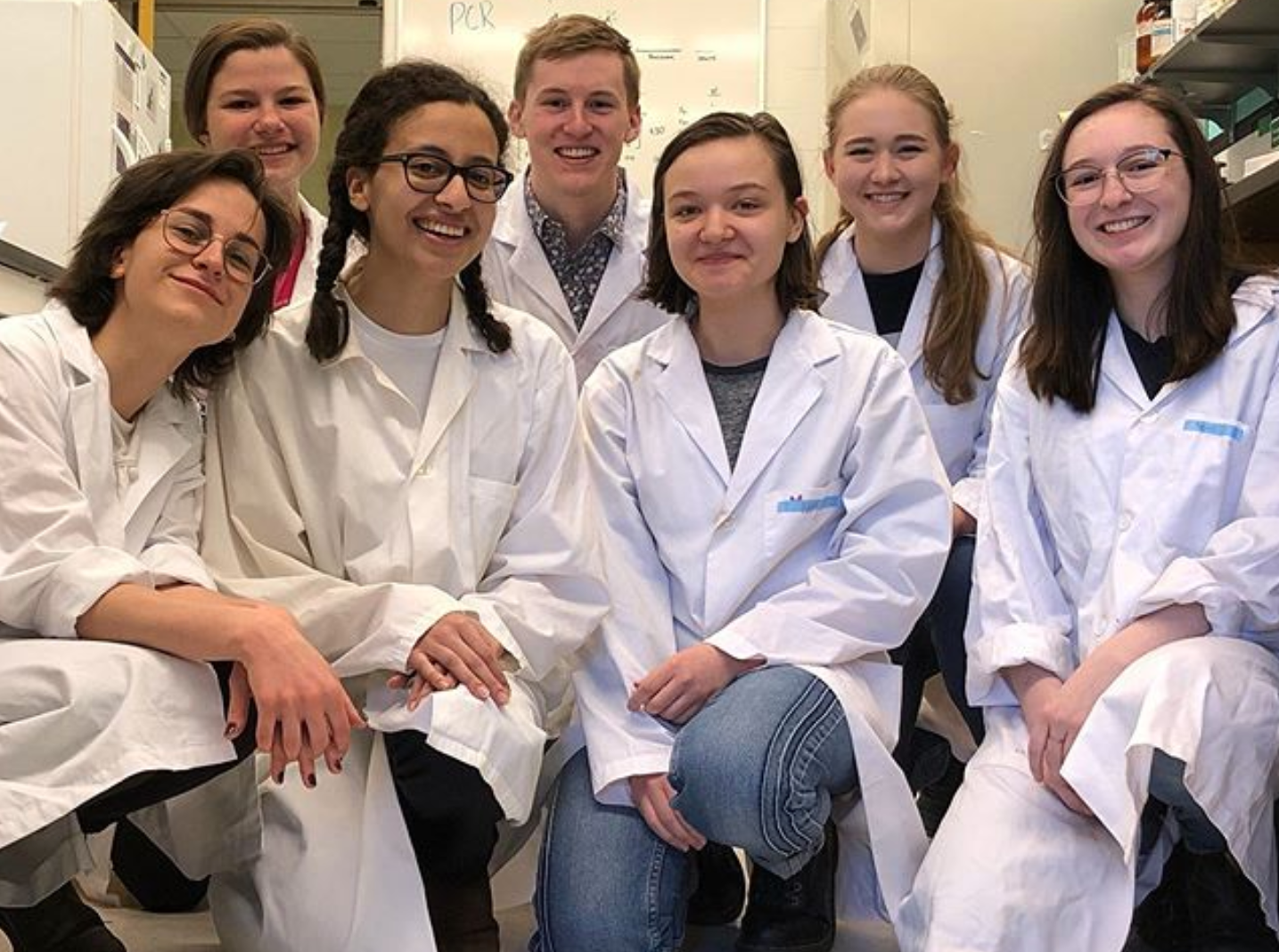Each year since 2005, a group of students from the University of Waterloo has been embracing the challenging, but rewarding world of synthetic biology, problem solving and researching for the iGEM (International Genetically Engineered Machine) competition. This competition brings together teams from countries around the world to showcase projects, and learn from each other at an annual conference.
 Over
the
past
year,
Waterloo’s
2019
iGEM
team
embarked
on
an
ambitious
project
to
solve
a
local
problem.
The
problem?
Canada’s
high
use
and
reliance
on
nitrogen-containing
fertilizers,
which
contribute
to
pollution
and
environmental
damage
–
especially
when
large
amounts
of
nitrogen
enter
bodies
of
water.
This
causes
algae
blooms,
which
block
sunlight
from
reaching
the
plants
below
the
surface,
and
also
decreases
the
amount
of
dissolved
oxygen
in
the
water,
killing
aquatic
life.
Over
the
past
year,
Waterloo’s
2019
iGEM
team
embarked
on
an
ambitious
project
to
solve
a
local
problem.
The
problem?
Canada’s
high
use
and
reliance
on
nitrogen-containing
fertilizers,
which
contribute
to
pollution
and
environmental
damage
–
especially
when
large
amounts
of
nitrogen
enter
bodies
of
water.
This
causes
algae
blooms,
which
block
sunlight
from
reaching
the
plants
below
the
surface,
and
also
decreases
the
amount
of
dissolved
oxygen
in
the
water,
killing
aquatic
life.
While this problem, known as eutrophication, may sound like a very large task to solve, Waterloo’s iGEM team focused their efforts on one simple question: Why do soybean farmers need to use so much nitrogen fertilizer, and what can we do about it? This question formed the basis of their research over the past year.
Waterloo’s team learned that the increased need for nitrogen fertilizer is related to the high use of herbicides. When herbicides are applied to a field, they not only kill weeds, but they also negatively impact the microorganisms in the soil. Some of these microorganisms, known as Rhizobia, take nitrogen gas (N2) from the atmosphere, and convert it into ammonia (NH3), which can then be used by plants.
After learning this, Waterloo’s iGEM team had a manageable goal to work toward: creating Rhizobia that are resistant to herbicides, so that the microbes can provide more nitrogen to the plants, thus reducing the amount of nitrogen fertilizer needed.

“iGEM is about experiential learning for students,” added Leah. “It’s an environment where we’re all doing it because we care and it’s fun – not because we need to get a credit or put on our resume as a job.”
The lab team was able to develop a gene construct – a synthetic portion of DNA, which can then be inserted into the genome of a microorganism. The human practices team also built relationships with local farmers and scientists, and designed an infographic to communicate the importance of synthetic biology with the public. Simultaneously, the mathematical modelling team worked to model the biochemical pathways within that modified microorganisms.
 This
year,
Waterloo’s
iGEM
team
was
awarded
silver
standing
at
the
annual
conference
in
Boston.
“Beyond
how
we
did
at
the
competition,
we
are
really
proud
of
how
we
worked
as
a
team
this
year!
Everyone
was
heavily
involved
in
the
project
and
put
in
a
lot
of
hard
work.
It
is
always
great
to
see
all
the
members
grow
together!”
This
year,
Waterloo’s
iGEM
team
was
awarded
silver
standing
at
the
annual
conference
in
Boston.
“Beyond
how
we
did
at
the
competition,
we
are
really
proud
of
how
we
worked
as
a
team
this
year!
Everyone
was
heavily
involved
in
the
project
and
put
in
a
lot
of
hard
work.
It
is
always
great
to
see
all
the
members
grow
together!”
Each year, the iGEM team looks for passionate students interested in joining their team. Team members do not need lab experience to participate, but instead iGEM looks for a willingness to learn! Applications for the 2020 iGEM team will open on their Facebook and Instagram accounts at the beginning of Winter term.